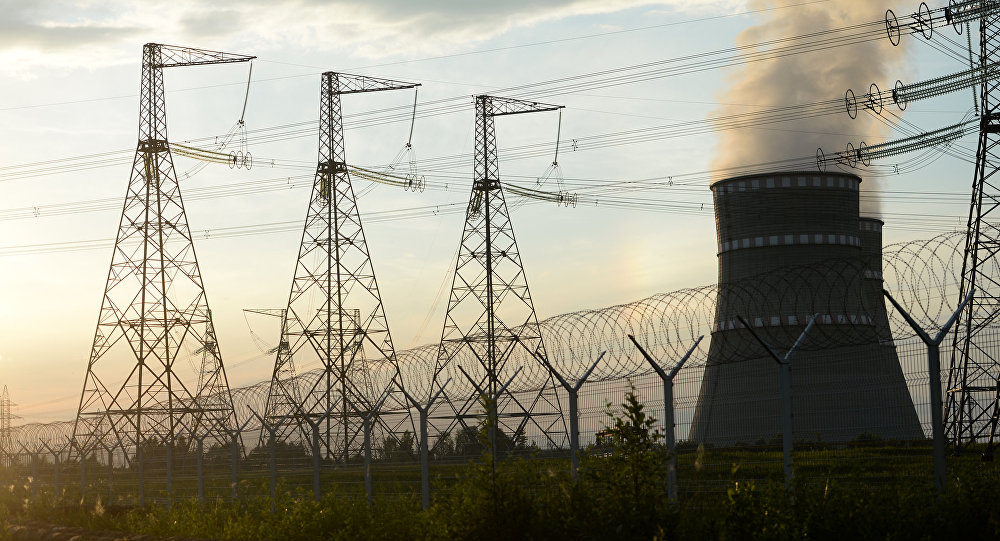Iran has signed a series of deals and memorandums of understanding with Syria in Tehran on Tuesday, to help its electricity sector rebound from more than six years of civil war, giving Tehran an economic foothold in Syria’s eventual reconstruction.
According to the deals, Iran will build a power plant in Syria’s coastal province of Latakia with a capacity of 540 megawatts (MW), help to restore full power to the northern city of Aleppo, and restore the main control center for Syria’s electricity grid based in Damascus. Syria was represented at the signings in Tehran by its Electricity Minister Zuhair Kharboutli.
The agreements also include improving the performance of Jandar Generating Plant in Homs and rehabilitating a 90 MW power station in Deir al-Zor province, where the Syrian army and allied forces have recently made advances against Islamic State (IS), according to Iran’s Tasnim news agency.
Iran will also establish five gas units in Bainas, each with a capacity of 125 MW, evaluate the damage caused to the Aleppo Thermal Station, and rehabilitate the first and fifth gas units in Aleppo.
“These contracts are for rebuilding electricity equipment, power plants, and the electrical grid of Syria so that better services will be offered to Syrian subscribers,” an Iranian Deputy Minister of Energy Sattar Mahmoudi said in Tehran, according to reports from Iran’s Mehr news agency.
Mahmoudi said the value of the contracts will be over €100 million ($118.7 million), and that Iran is also ready to help Syria with reconstructing its water and sewage facilities.
Syria’s electricity generation capacity dropped by more than a half from 2010 to 2014, according to the latest figures available from the OECD's International Energy Agency monitoring group.
In a sign of just how loyal Iran has been to the regime of Syria’s embattled President Bashir Al Assad, and how deals have been struck to pay that loyalty back, Iranian companies are already involved in several electricity generation projects there worth $660 million. Projects are underway that would export electricity and connect Syria’s grid to the national grids of Lebanon and Iraq.
“Iranian companies are well capable of providing power-plants and energy equipment. We hope to be able to use these capabilities for the cause of rebuilding Syria,” Syrian Electricity Minister Mohammad Zuhair Kharboutli said.
Iran is providing not only a technical capacity to Syria but has been bankrolling many of its reconstruction and development projects.
In 2013, Tehran authorized a $3.6 billion credit line for importing goods and commodities and implementing civilian projects. In January of this year, the two countries signed several agreements during a visit by Syrian Prime Minister Imad Khamis to Tehran, under which Iran would build a mobile service operator in Syria.
Under the deals, Syria would grant a license to Iran to operate the country’s third mobile service provider and allow Iran to set up a petrol terminal on 5,000 hectares (12,355 acres) of land. Syria would give Iran another 5,000 hectares of land for farming, commission the operation of phosphate mines in Sharqiya, and a allow Iranian companies full access to a port on Syria’s coast.
Since the start of the civil war in Syria in 2011, Iran has officially supported the internationally recognized government of President Assad. Iran had deployed Quds Force battalions from its Islamic Revolutionary Guards Corps (IRGC) as early as 2012 to lend its support to combat revolutionaries as well as help fight IS.
More than 280 Iranian troops have been killed in Syria since September 2015, according to a report by the Levantine Group, an independent consultancy that tracks media reports of Iranian casualties in the conflict. Reuters has stated that over 1,000 soldiers deployed by the IRGC to Syria have been killed on front lines of the conflict in recent years.







 Russian peacekeeping forces, deployed in the Karabakh (Garabagh) region of Azerbaijan since 2020, have commenced their withdrawal from the area.
Russian peacekeeping forces, deployed in the Karabakh (Garabagh) region of Azerbaijan since 2020, have commenced their withdrawal from the area.
 Iran's senior military leaders described the drone and missile attack on Israel on April 14 night as “successful".
Iran's senior military leaders described the drone and missile attack on Israel on April 14 night as “successful".
 The number of evacuees from flooded areas in Kazakhstan has reached 97,852 people, including about 32,856 children since March 27.
The number of evacuees from flooded areas in Kazakhstan has reached 97,852 people, including about 32,856 children since March 27.
 Azerbaijan officially unveiled the logo for the upcoming 29th session of the Conference of the Parties to the United Nations Framework Convention o...
Azerbaijan officially unveiled the logo for the upcoming 29th session of the Conference of the Parties to the United Nations Framework Convention o...
 Iranian President Ebrahim Raisi warned Israel that it would face a "real and extensive" response if it makes any "mistake" following Tehran’s missi...
Iranian President Ebrahim Raisi warned Israel that it would face a "real and extensive" response if it makes any "mistake" following Tehran’s missi...



